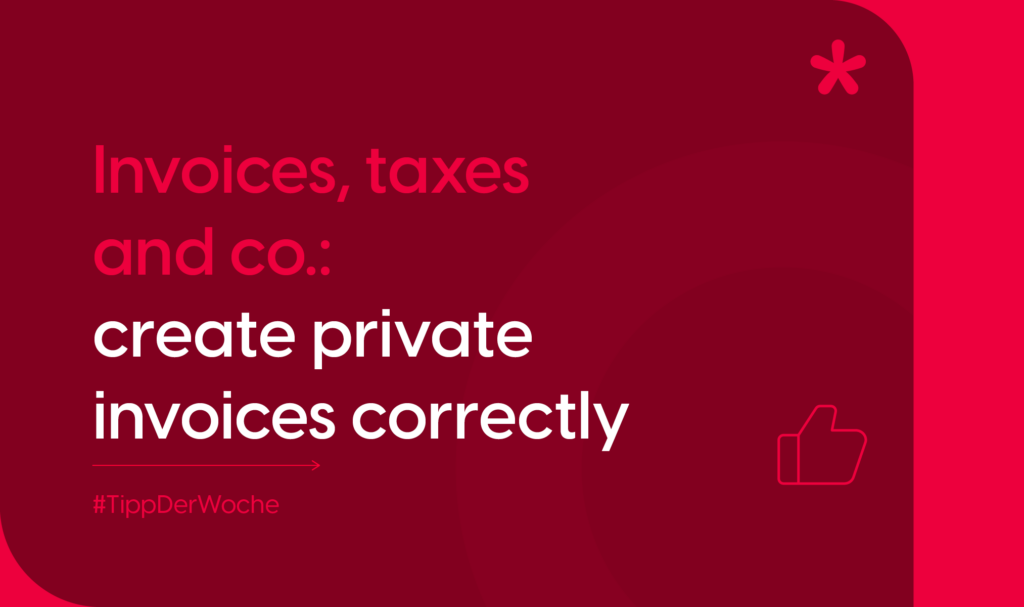
Besides your full-time job, you still provide small services? Or you sell handmade products, online, for small money?
Even without a business, it can happen that your business partner wants an invoice. In your special case as a private person, there would be no obligation to do so, but you still have the possibility of a so-called private invoice. We will gladly explain to you how to issue invoices as a private person.
Inhaltsverzeichnis
What is a private invoice and is there an obligation to issue one?
If you sell something as a private person but have not registered a business, it may still happen that your business partner requires an invoice. The business partner does not have to be an entrepreneur either. It can also be a private person.
It should also be made quite clear: there is no obligation for you to issue an invoice. However, if you issue an invoice, you must comply with the basic requirements of the Trade Regulation Act. Even without a business registration!
A private invoice is basically unlimited in its amount. One thing to keep in mind, however, is tax. Your private services will only be tax-free if your profit from the generated turnover remains below 600 Euros per year.
What is the mandatory information for the private invoice?
Anyone who is already familiar with our guide page The 10 components and mandatory details of an invoice is well informed about the contents of a regular invoice from a business. The difference to a private invoice results from the omission of the VAT information. However, the main points remain the same even in the case of a private invoice:
- Your name and full address as a service provider or seller of goods.
- The name and address of your customer
- The invoice date
- The service period or the time of sale of a good
- The scope of service or the quantity and description of the goods
- Important for both contracting parties: the reference to a present private sale/service
Since you do not have a tax number or a VAT identification number, you cannot include them. However, just as with the small business regulation, you also indicate a reference to this on your private invoice in order to declare the tax exemption.
What happens in the case of recurring billing for the same service?
Your assignment was planned as something one-time at the beginning of the business relationship? But now it turns out that the cooperation will continue permanently and you therefore have to invoice your services regularly?
From this point on, you should ask for information about registering a business or do it directly. This is because recurring activities and billing can be regarded as commercial activities. And these in turn require a business registration.
It is best not to take any risks and seek professional advice from a tax consultant.
Using easybill as a private person – is that possible?
easybill as an invoicing software supports everyone in their daily business when it comes to invoicing. The industry, the company size or the legal form of the company does not matter.
You set up easybill completely according to your ideas. For example, you choose from the beginning that you do not need a tax statement on your documents. Any information about what should be printed and what information is not necessary in your personal case, you edit via the layout settings and document templates.
If you also manage your private invoices in easybill right from the start, the changeover to an invoice with a tax statement is no longer difficult. You don’t have to get used to a new system and you still have an overview of all your documents, customer data and sales. It’s best to get started right away!
Read also:
Vacation rental invoices: Our 10 points for your checklist
Successful invoicing for small business owners: 7 key facts for your business
Effective invoicing: How easybill-CSV Import helps you create invoices

